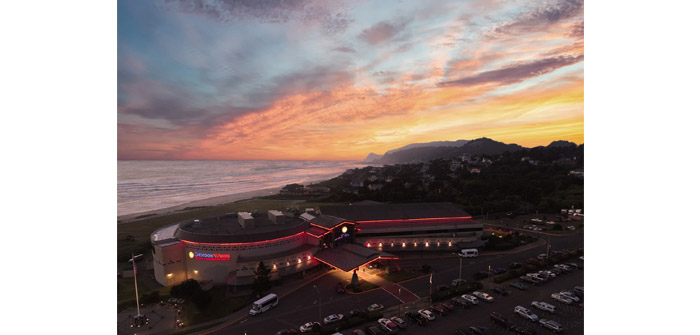Right now, the idea of gravitating to a casino in Oregon for entertainment or artistry will be a foreign one to most. The state is not known for casinos, and though it does have some good options, they are not the oversized resorts that tend to call to tourists, let alone locals seeking a fun night out. Places like Three Rivers Casino & Hotel, Chinook Winds Casino, and Seven Feathers Casino & Hotel Resort might make for excellent gaming getaways and fun bases for vacations exploring some of Oregon’s splendid nature. But for a lot of people, they aren’t necessarily on the radar.
With that said, shifting winds in gambling legislation have made it appropriate for people in virtually every state to imagine a different future on the casino front. Right now, the selection of U.S. gambling sites is expanding online, primarily as a result of a 2018 Supreme Court ruling and a few states’ early progress toward legal betting and gaming. Right now the number of states that allow real-money activity in these areas is still small. But a majority of state governments are at least considering some level of gambling legislation – and in some cases, physical venues with legal gambling are on the table.
Naturally, before anything else, this means opportunities for casino and sportsbook companies. Should major players in these industries make it into a state like Oregon, it could mean some fairly significant resorts and accompanying gaming revenues. This is not to say the Vegas Strip is about to be replicated somewhere in rural Oregon – but we may see resorts significantly larger and more active than the ones mentioned above.
What we’re suggesting here though is that venues like these could also represent new opportunities for artists of different kinds throughout the state.
First and foremost, there’s design to consider. Granted, a lot of the major casino companies we alluded to have established aesthetics, and might be inclined to showcase their offerings via tried-and-true designs. At the same time though, it’s easy to imagine public resistance, particularly in a state (or city specifically, if you consider something like a Portland casino) that prides itself on beauty. A Vegas replica, most anywhere in Oregon, would stand out in glaring fashion; a casino company with the willingness to rope in local designers and architects, however, could wind up with a venue that suitably represents the state.
There could be opportunities for musical artists as well, or rather for the whole Oregon music scene. The state is not lacking in beloved concert venues; 11 of them made a worldwide ranking just a few years ago, in fact. But a casino – a decent-sized, popular one – can have an almost unique ability to drive attention. A performer at a casino can have an audience augmented by the rest of the entertainment and attractions the place offers, which means these could become very valuable shows for local performers. Plus, naturally, with a big enough casino, the state could attract even more attention than it already does from established artists on tour.
Other artists, too, could benefit from an Oregon future infused with casino venues. If state designers and architects could hypothetically be roped in to help with the buildings themselves, perhaps visual artists could be employed to help with internal décor; if performance centers could house local musicians, maybe they would also represent opportunities for theater troupes or solo performers.
This is not to say there wouldn’t be downsides, nor to suggest that a casino’s sole or primary purpose is to boost the arts. However, if casino projects are discussed in the next few years (as we suspect they will be across much of the U.S.), these are some of the potential positives worth keeping in mind.

